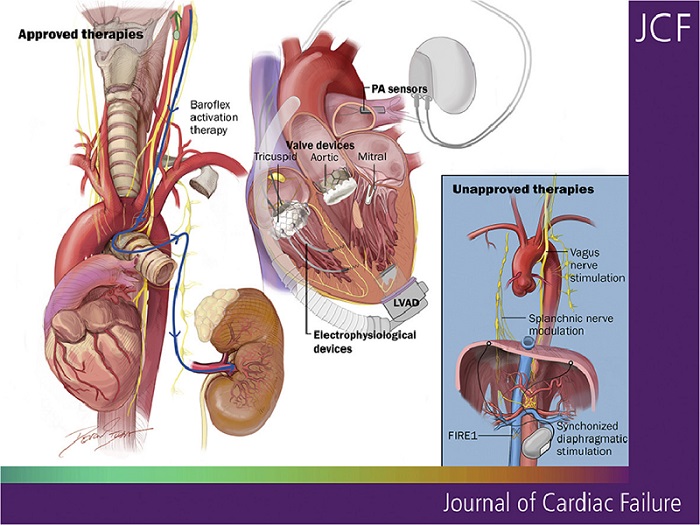Novel Device-Based Therapies Could Overcome Limitations of Pharmacologic Therapies for Heart Failure Patients
Posted on 12 Sep 2024
Significant strides have been made in reducing hospitalizations and improving outcomes for heart failure (HF) patients over the past decade. However, even with optimized guideline-directed medical therapy (GDMT), the residual risk remains comparable to or worse than other major cardiovascular diseases. While established medical devices like implantable cardioverter-defibrillators (ICD) and cardiac resynchronization therapy (CRT) are commonly used alongside drug therapies, some high-risk patients who cannot tolerate certain medications may benefit from novel device therapies. These new device-based treatments have the potential to address the limitations of pharmacologic therapies for certain HF patients, suggesting that a combination of both approaches could be optimal for implementing GDMT.
The Heart Failure Society of America (HFSA, Rockville, MD, USA) Scientific Statement: Update on Device Based Therapies in Heart Failure, published in the Journal of Cardiac Failure (JCF), provides a comprehensive update on the rapidly evolving field of device-based therapies for HF, offering a clinical framework for integrating these technologies alongside pharmacologic treatments. The statement defines how these novel devices could help fill current gaps in HF care and outlines a pathway for incorporating FDA-approved device-based therapies in the current HF management protocol. The FDA-approved devices highlighted in the statement include cardiac contractility modulation (CCM), baroreflex activation therapy (BAT), transcatheter aortic valve replacement, mitral valve edge-to-edge repair, tricuspid valve repair, CardioMEMS pulmonary artery pressure monitoring, and the HeartMate (HM) left ventricular assist device (LVAD).

The recommended clinical pathway suggests considering these devices for patients who continue to experience New York Heart Association (NYHA) class II or above symptoms after 3-6 months of pharmacologic GDMT and CRT. The statement also calls for better systems to assess which patients are eligible for device-based therapies, as these treatments may be underutilized, especially in patients who could benefit from more than one device. Overall, the statement advocates for a personalized approach to therapy selection, combining device and pharmacologic treatments within the GDMT framework to optimize patient outcomes.
"Our consensus document defines the unmet need in chronic heart failure and the important role of device-based therapies in bridging heart failure gaps," said co-lead author Jerry D. Estep, M.D., FACC, FASE (Division Chair, Cardiovascular Medicine, Cleveland Clinic Florida). "We provide detailed information on the different categories of heart failure devices and use considerations based on associated contemporary outcome data. We hope our document will improve patient outcomes by providing a clinical framework to guide implementation of current and future FDA approved device-based therapies."
Related Links:
HFSA














